In order to further strengthen construction for the talent team of applied physics and magnetic confinement thermonuclear fusion related disciplines, the School of Physics of Peking University invited researcher Wan Baonian, academician of the Chinese Academy of Sciences and chief scientist of the Institute of Plasma Physics of the Hefei Institute of Physical Sciences, Chinese Academy of Sciences, as a visiting professor of Peking University, and held an appointment ceremony and academic report on the afternoon of August 24, 2022 in Conference Room 4 of the University Hall of Peking University Boya International Hotel. Professor Yan Xueqing, Dean of the School of Physics, Academician Gao Yuanning and Deputy Dean, Ma Wenjun, Deputy Director of the Institute of Heavy Ion Physics, and Professor Xiao Chijie, Deputy Director, attended the appointment ceremony, which was attended by teachers and students from Applied Physics, Plasma Physics, Nuclear Technology and Applied Studies. The appointment ceremony was presided over by Vice President Yan Xueqing.
In his speech, Vice Dean Yan Xueqing expressed his warm welcome and gratitude to Academician Wan Baonian as a guest chair professor of the school, and introduced the newly established undergraduate program of applied physics in the School of Physics in 2021, which is guided by the international scientific frontier and national strategic needs, adheres to the world's scientific and technological frontier, the main economic battlefield, the major national needs, and the people's life and health, focusing on health, energy, advanced manufacturing and information science. Vice Dean Yan Xueqing introduced from the current increasingly serious energy problem and emphasized that controlled fusion energy is an important part of energy research. Academician Wan Bao Nian is a top scientist and educator in the field of magnetic confinement nuclear fusion energy, and by hiring Academician Wan Bao Nian as a visiting professor of Peking University, the cooperation between the School of Physics of Peking University and important national nuclear science research units can be further strengthened, which is of great significance for promoting the healthy development of related disciplines of Peking University and improving the quality of training of applied physics professionals.
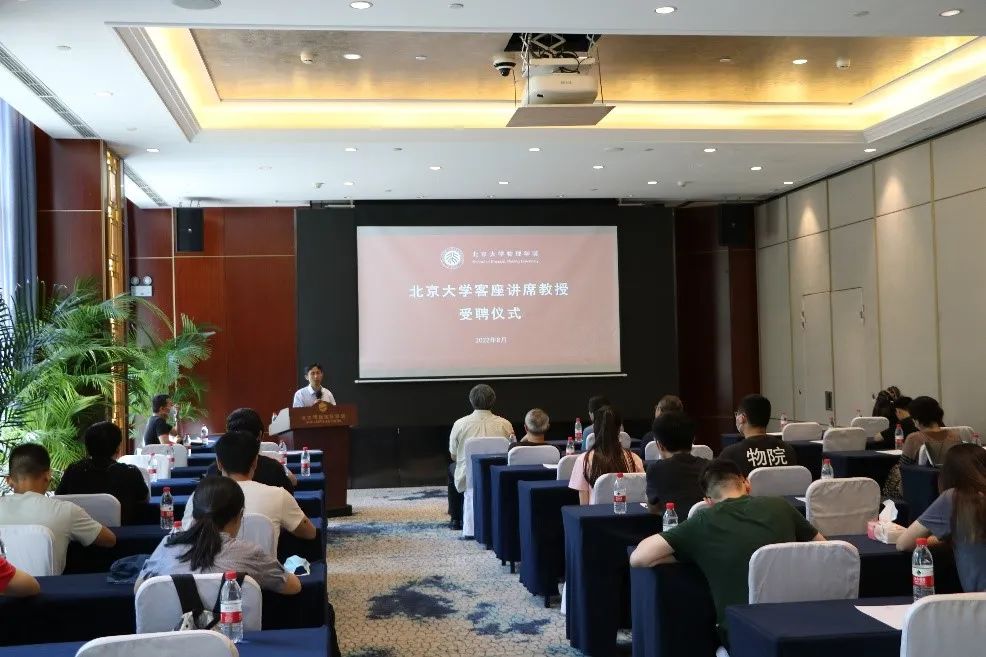
Vice President Yan Xueqing presided over the ceremony
Subsequently, Dean Gao Yuanning presented Academician Wan Baonian with the appointment letter of appointment of Peking University Visiting Chair Professor.
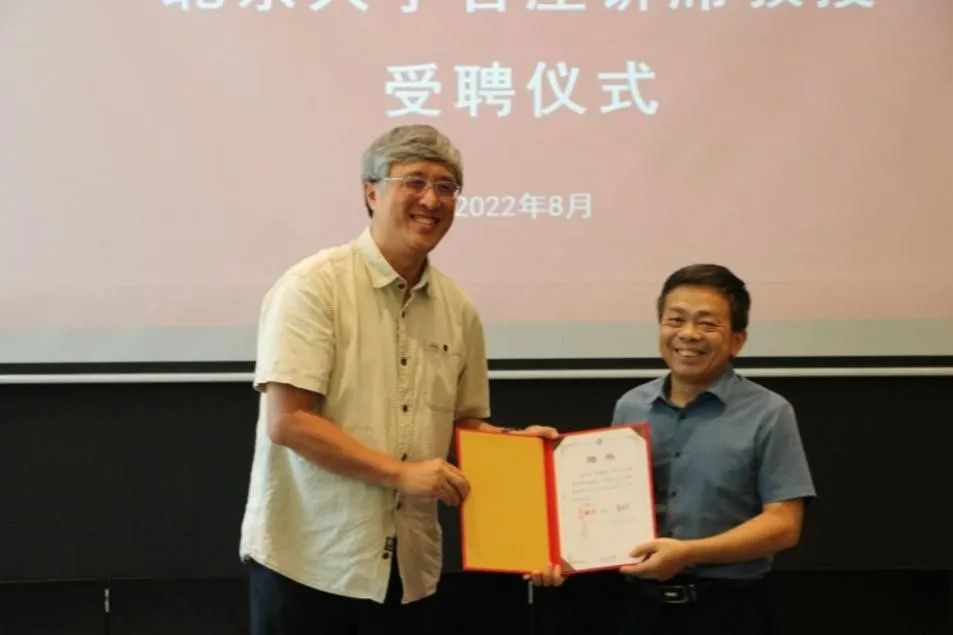
Dean Gao Yuanning presented Academician Wan Bao Nian with the appointment letter of visiting professor of Peking University
After the appointment ceremony, Academician Wan Bao Nian gave an academic report entitled "Tokamak H-mode long pulse operation". In the report, Professor Wan first reviewed the research history of the steady-state operation of magnetic confinement nuclear fusion, introduced the research background of H-mode long pulse operation, briefly explained that the magnetic confinement nuclear fusion large science and engineering experimental team led by him focused on some key scientific and technical issues of the steady-state operation of fusion reactors, summarized the physical and engineering experimental research on long-term scale, steady-state fusion plasma, and a number of original achievements in high-performance, steady-state and long-pulse plasma research. Finally, Ms. Wan analyzed and looked forward to the current challenges and opportunities. After the report, Mr. Wan had in-depth exchanges and discussions with teachers and students on related issues, and put forward ardent expectations for the cultivation of talents in plasma physics and nuclear disciplines in our institute.
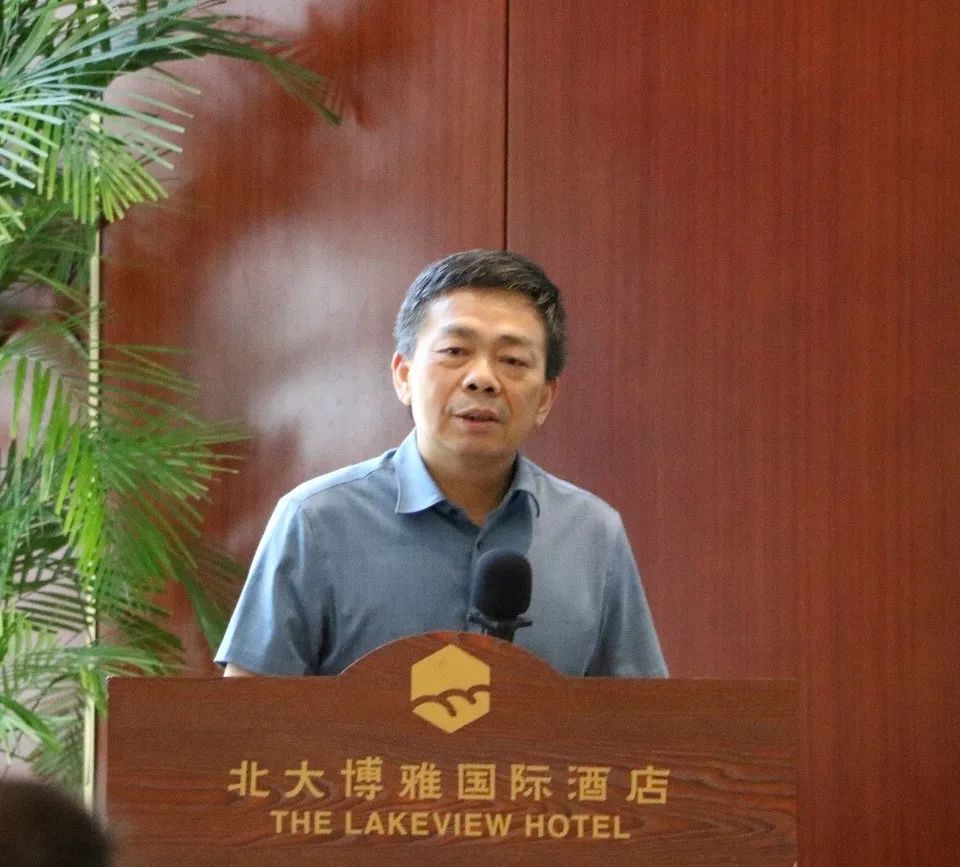
Academician Wan Bao Nian gave an academic report
After the report, Dean Gao Yuanning once again expressed his warm welcome and gratitude to Academician Wan Bao Nian for joining. He pointed out that fusion energy is a very good field for physics research, and it gives us a lot of opportunities to explore. A few days ago is a very important time node, because many devices have been built, theory and experiment have begun to collide, and it is expected to produce good scientific research results. For Peking University, we are not only concerned about nuclear fusion in the future, but also about whether we can make major breakthroughs in the study of plasma physical mechanisms in the near future. This is very important for the construction of teachers and high-level talents in related disciplines.
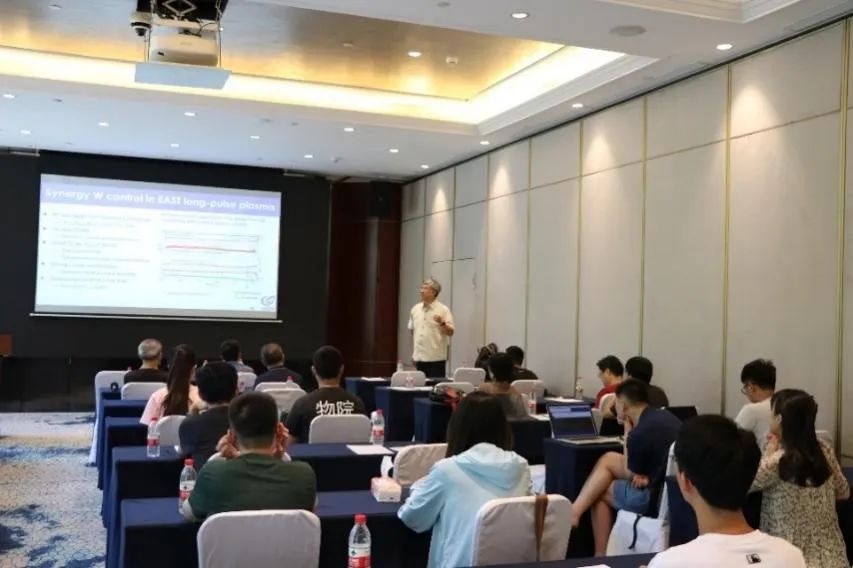
Dean Gao Yuan Ning concluded
Finally, Academician Wan Bao Nian took a group photo with teachers and students who participated in the ceremony.
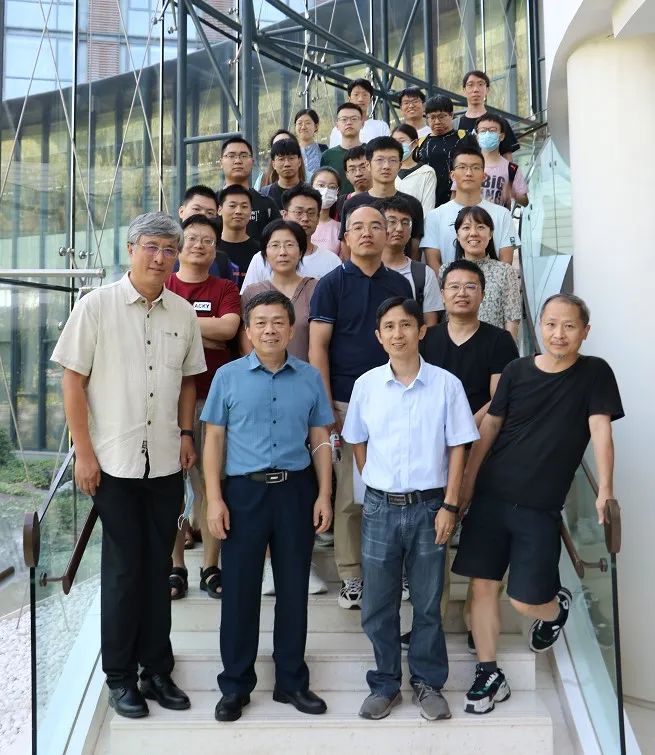
Academician Wan Bao Nian took a group photo with teachers and students
Wan Baonian, academician of the Chinese Academy of Sciences, winner of the National Science Foundation for Outstanding Young Scholars, has long been engaged in magnetic confinement fusion plasma physics research. In view of several major challenges restricting the high-constrained steady-state operation of the International Thermonuclear Experimental Reactor-ITER, he led the team to carry out research on China's superconducting tokamak device, explored the advanced operation mode of long-pulse high-constraint based on radio frequency wave heating and current driven, and took the lead in obtaining high-constrained long-pulse plasma under conditions close to ITER steady-state physical conditions, which provided a feasibility experimental verification for the high-constrained steady-state operation of the tokamak and an optional steady-state operation mode for ITER and future fusion reactors. The first person to complete the achievement won the Outstanding Scientific and Technological Achievement Award of the Chinese Academy of Sciences and the First Prize of Natural Science of Anhui Province. As a core personnel, he won the first prize of National Science and Technology Progress Award (6th completer, diagnostic construction) and the National Science and Technology Progress Innovation Team Award (2nd completer, physical operation). In 2021, he was elected as an academician of the Chinese Academy of Sciences. He represented China in the formulation of the first version of the ITER research program and completed the preliminary physical concept design of the China Fusion Engineering Test Reactor-CFETR. He has published more than 350 papers, including 1 in Nature Physics, 10 in Physical Review Letters, and more than 80 in Nuclear Fusion, a top journal in the field of fusion.
Contribution: Institute of Heavy Ion Physics
Typesetting: Qu Yin Xuan
Reviewed: Ma Wenjun, Yan Xueqing